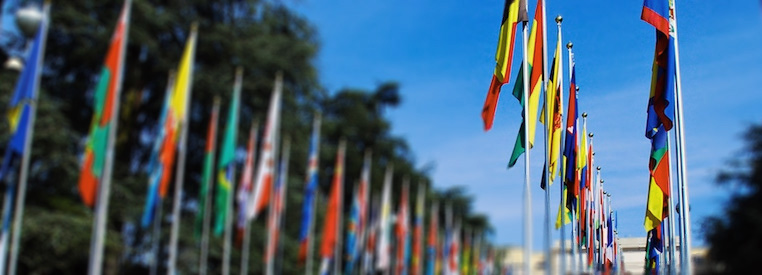Iran| Clash between opposition protesters, security forces
Dozens of people are reported to have been arrested across Iran after violent confrontations between security forces and anti-government demonstrators.
In the capital Tehran, police and militiamen used batons and teargas, and witnesses said there had been gunfire.
The protests, led by Iranian students, were over the disputed re-election of President Mahmoud Ahmadinejad and suppression of academic freedom.
It appears to be the most widespread unrest in Iran for months.
Foreign journalists were banned from reporting on the rallies, and the Iranian authorities closed down mobile phone networks and severely restricted internet access. [...]
Monday’s violence came during Iran’s annual commemoration of the killings of three students during anti-American protests in 1953. [...]
Dozens of people have been given jail terms and as many as five people have been sentenced to death following the post-election demonstrations.
At the weekend, more than 20 people were arrested at a regular protest by a group of women that includes mothers whose sons and daughters were killed in post-election violence. Some of the women were later released. [...]
More here from BBC.
UN human rights chief urges end to death penalty in Iran

UN Photo / Jean-Marc Ferre
Navi Pillay, the UN High Commissioner for Human Rights, has spoken out against the use of the death penalty for juvenile offenders in Iran. Speaking on 13 October, she also voiced serious concern over the death sentences recently handed down to three people for their involvement in the post-election protests that gripped the media’s attention around the world.
According to the news release issued by the Office of the High Commissioner for Human Rights, Behnoud Shojaie, 17, who was executed on Sunday, had been convicted of the murder of another boy in a street fight. Both Pillay and UN special rapporteurs had broached the issue with Iranian authorities to remind them of their legal obligations not to execute juveniles, under the International Covenant on Civil and Political Rights and the Convention on the Rights of the Child, to both of which Iran is a party.
“This latest execution shows there are no guarantees of clemency for juveniles until Iran changes its law and practice to end execution of juvenile offenders once and for all,” the High Commissioner said. “It is the State’s responsibility to stop these executions, not a family’s prerogative.”
With regard to the death sentences issued to three post-election protesters, she noted that, “Under international law, the death penalty can only be applied when very strict conditions are met, for example only in respect of the most serious crimes and only after scrupulously fair trials.”
UN human rights mechanisms are of the view that imposing the death penalty for crimes that do not result in loss of life belies the principles of the International Covenant on Civil and Political Rights.
More here.
ICJ: Human Rights Council urged to protect judges and lawyers in times of crises
The International Commission of Jurists (ICJ) urged the UN Human Rights Council as it opened its 12th session in Geneva on 14 September 2009 to establish a new expert mandate to improve protection of human rights of individuals in armed conflicts and generally in any crisis situations. The ICJ requested the Council to harness protection of judges and lawyers from violence and intimidation inflicted on them for their professional functions. It also sought accountability for human rights violations and international crimes committed by the Israeli Army, Hamas and other Palestinian armed groups during the recent war in Gaza. Read more
